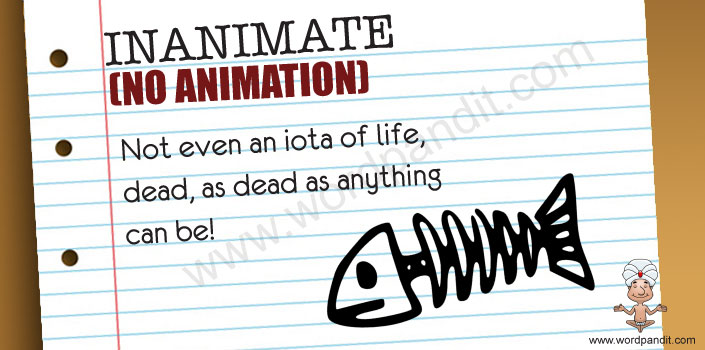 Inanimate ( Adj) describes a non-living thing. Books, Chairs, baseballs, sofa, and cushions are all inanimate objects.
Inanimate ( Adj) describes a non-living thing. Books, Chairs, baseballs, sofa, and cushions are all inanimate objects.
Pronunciation: in-an-uh-mit
Origin of Inanimate
Inanimate is derived from Latin “inanimatus” which means ‘lifeless’, from in- ‘not’ +animatus
Dictionary Meanings of Inanimate
1. not endowed with life
2. belonging to the class of nouns denoting nonliving things
Master’s Tip to Learn Inanimate
We can break inanimate down into two Latin roots- in which means “not,” and animatus, which translates to “alive.” So inanimate simply means, “Not alive.” A bear in hibernation may appear inanimate due to its decreased heart rate, but don’t be fooled — it’s very much alive.
Sentence Examples:
1. Dr. Frankenstein succeeds in bringing his inanimate creature to life, but, as Mr. Holmes writes, his soul — or spirit — is “irreparably damaged.”
2. “People have been seeing faces in inanimate objects for thousands of years and recording them,” Beck says.
3. Even when they hit some inanimate object, it might make them feel better by releasing pent-up tension, he said.
4. On the contrary, many bodies are found in Nature, both animate and inanimate, which are luminous and affect the eye at comparatively low temperatures.
5. In a syndicated strip in the 1960s, “Still Life,” Mr. Robinson featured inanimate objects involved in conversation, often political.










